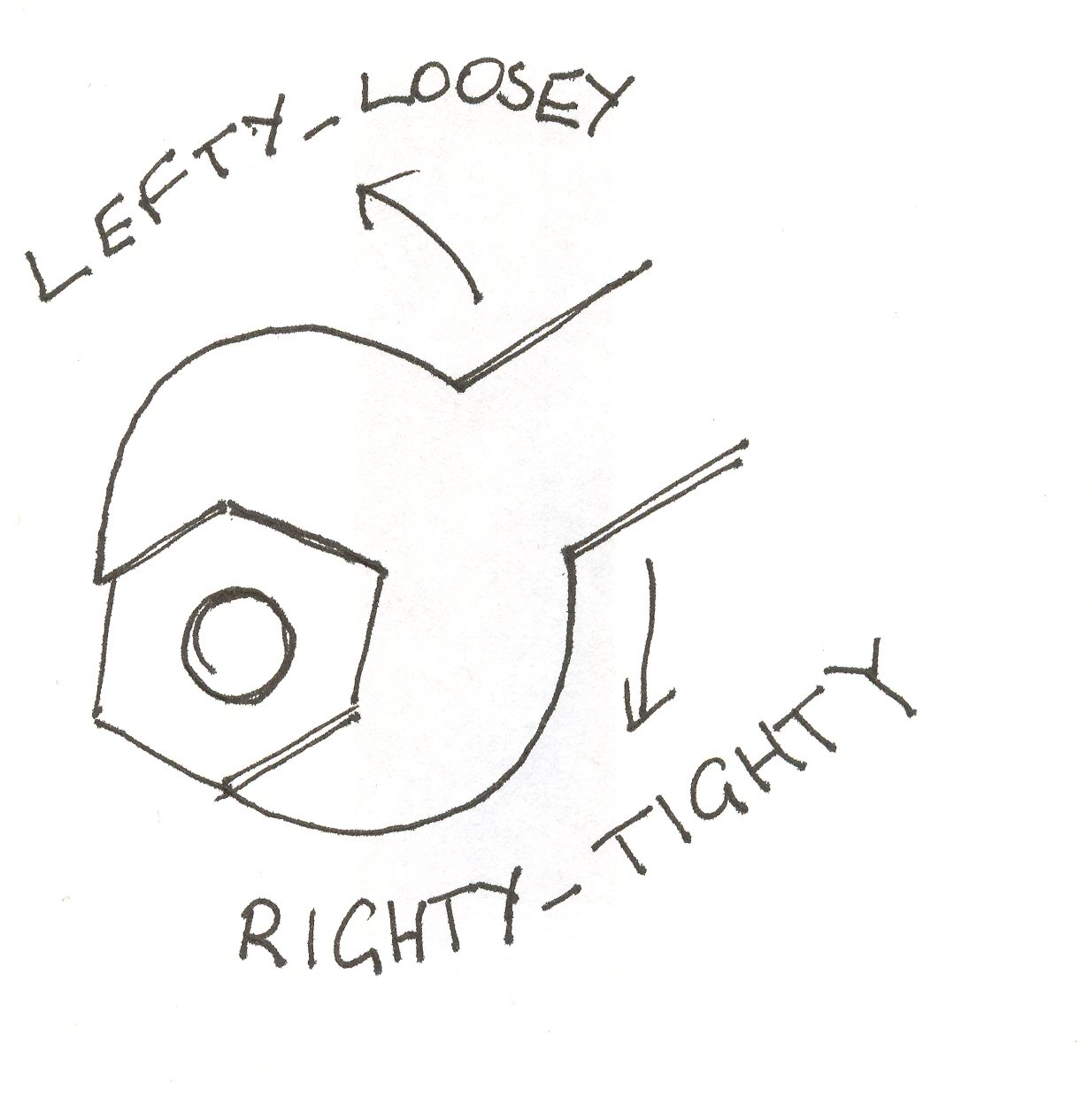Gas valves famously use the opposite direction
Asklemmy
A loosely moderated place to ask open-ended questions
If your post meets the following criteria, it's welcome here!
- Open-ended question
- Not offensive: at this point, we do not have the bandwidth to moderate overtly political discussions. Assume best intent and be excellent to each other.
- Not regarding using or support for Lemmy: context, see the list of support communities and tools for finding communities below
- Not ad nauseam inducing: please make sure it is a question that would be new to most members
- An actual topic of discussion
Looking for support?
Looking for a community?
- Lemmyverse: community search
- sub.rehab: maps old subreddits to fediverse options, marks official as such
- !lemmy411@lemmy.ca: a community for finding communities
~Icon~ ~by~ ~@Double_A@discuss.tchncs.de~
I don't think we have a Swedish one. But we call clockwise "medsols" and counterclockwise "motsols". Meaning "with the sun" or "against the sun" Does everyone have reversed threads on plumbing or is that a Nordic/Swedish thing? All plumbing has the reversed rule, left tightens and right loosens.
DROL: Dicht Rechts, Open Links.
I think I just prefer Links Los, which implies that the other way tightens.
Dutch, BTW.
"Eins og kókflaska" or "Same as a Coca Cola bottle", not universal in Iceland though
Gas pipes. All gas fittings are reversed threaded. So it is virtually impossible to connect one to the other.
If japanese has one, I've never heard it. Japanese wife hasn't either. She was surprised it's a thing. She said maybe tradesmen might, but certainly nothing everyone knows
I remember it as right hand screw rule
